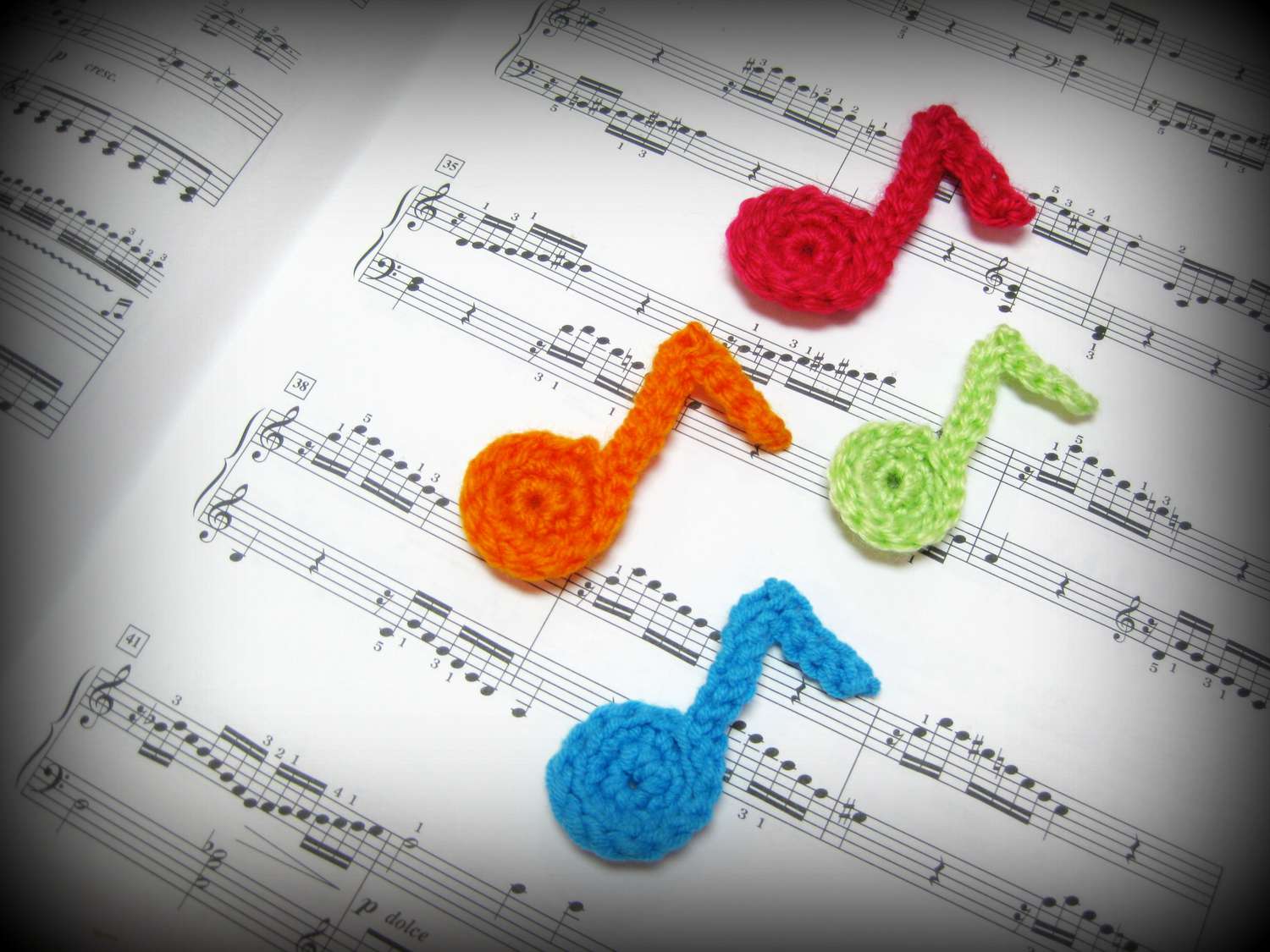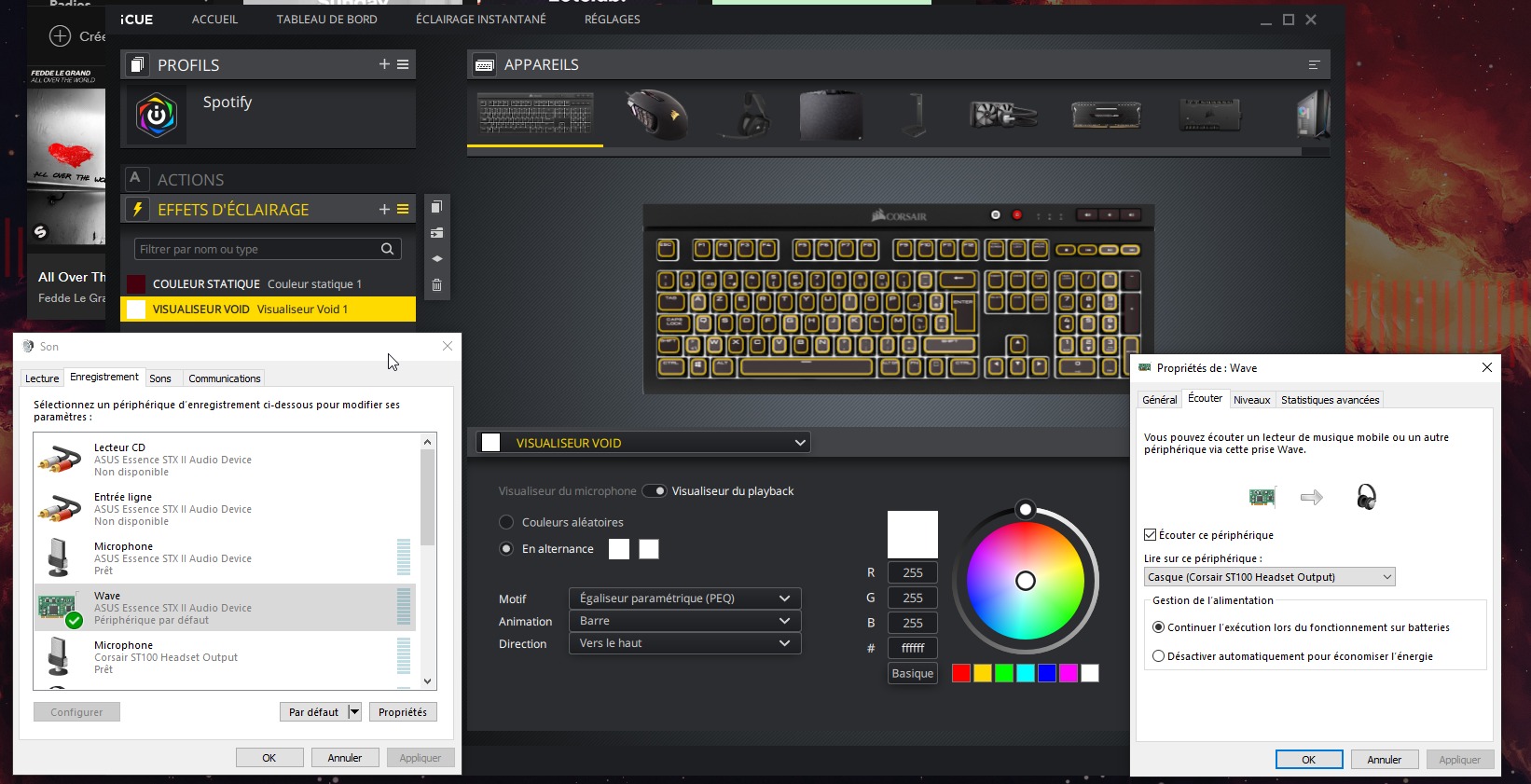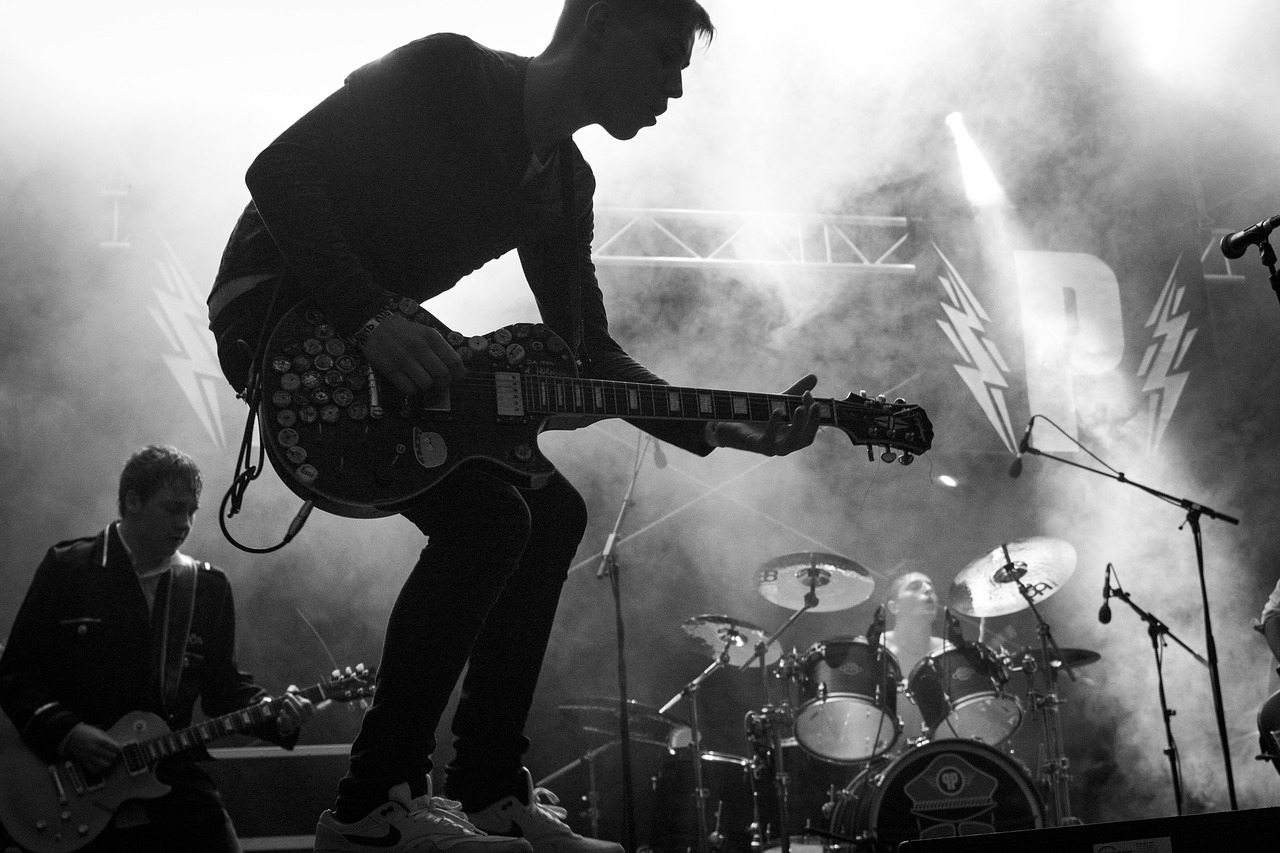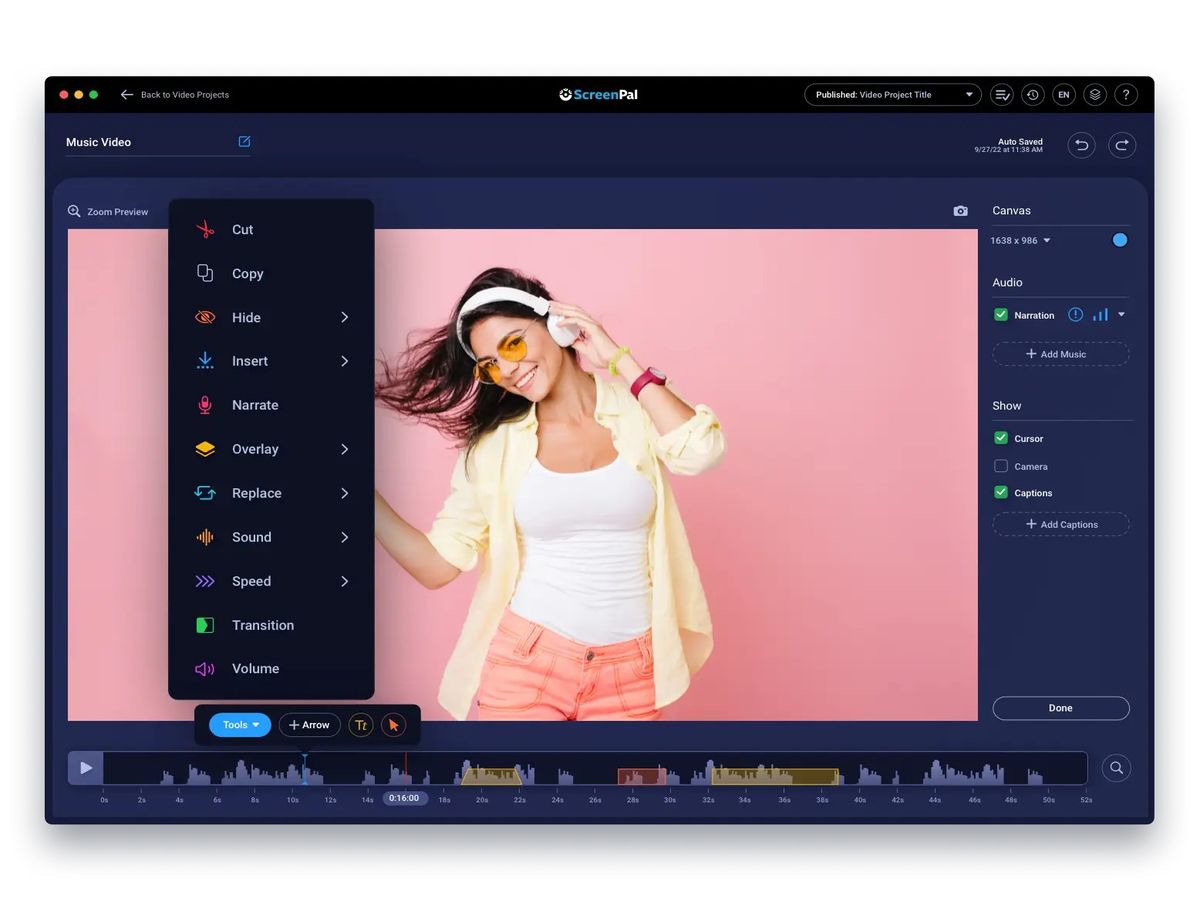Home>Genres>Rock>What Music Software Is Best For Writing Rock Music


Rock
What Music Software Is Best For Writing Rock Music
Modified: February 19, 2024
Looking for the best music software for writing rock music? Find out the top-rated tools that will bring out your inner rockstar and enhance your creative process.
(Many of the links in this article redirect to a specific reviewed product. Your purchase of these products through affiliate links helps to generate commission for AudioLover.com, at no extra cost. Learn more)
Table of Contents
Introduction
Rock music is a genre known for its powerful guitar riffs, impactful drums, and energetic performances. Whether you’re a seasoned rock musician or just starting out, having the right music software can make a significant difference in the quality and efficiency of your songwriting process. In this article, we will explore the various types of music software that are best suited for writing rock music.
From digital audio workstations (DAWs) to notation software, virtual instruments, effects, amp simulations, and even rock-specific tools and plugins, there are numerous options available to cater to the specific needs of rock musicians. These software tools not only provide a platform for recording, mixing, and arranging your music but also offer a wide range of features and resources to help you create that signature rock sound.
In the world of rock music, it’s crucial to capture the raw energy and intensity that defines the genre. Whether you’re a guitarist, drummer, bassist, or vocalist, having the right tools at your disposal can unleash your creativity and take your compositions to the next level. So, let’s dive into the different types of music software that are essential for writing rock music.
DAWs (Digital Audio Workstations)
A Digital Audio Workstation, or DAW, is the backbone of any music production process. It is a software application that allows you to record, edit, and arrange audio and MIDI tracks. For rock musicians, a powerful and feature-rich DAW is essential for capturing the energy and dynamics of their performances.
When choosing a DAW for rock music production, there are several factors to consider. Firstly, it should have a user-friendly interface that allows for efficient workflow and easy navigation. This is especially important during the recording and editing process, as you want the software to be intuitive and responsive.
Secondly, a DAW should have comprehensive editing capabilities, allowing for precise manipulation of audio and MIDI tracks. This includes features such as grid snapping, real-time pitch correction, quantization, and MIDI editing tools.
Additionally, a good DAW for rock music should have a wide range of virtual instruments and audio effects to choose from. This will enable you to experiment with different guitar tones, drum sounds, and other instrumental textures to create the perfect rock sound.
Some popular DAWs that are widely used by rock musicians include:
- Pro Tools: Known for its professional-grade recording and editing capabilities, Pro Tools is a go-to choice for many rock producers and engineers.
- Logic Pro: Exclusively available for Mac users, Logic Pro offers a vast array of virtual instruments, effects, and advanced production tools.
- Ableton Live: Renowned for its versatility and live performance capabilities, Ableton Live is favored by rock musicians who incorporate electronic elements into their music.
- Studio One: With its user-friendly interface and powerful recording and editing features, Studio One is an excellent choice for both beginners and experienced producers.
These are just a few examples of the many DAWs available on the market. It’s important to explore and experiment with different options to find the one that suits your workflow and creative preferences.
Choosing the right DAW is an investment in your rock music production journey. It will not only streamline your workflow but also empower you to bring your musical ideas to life with precision and creativity.
Notation Software
While rock music is often associated with its improvised and organic nature, having notation software can be invaluable for songwriting, arrangement, and collaboration purposes. Notation software allows you to write, edit, and share musical scores, making it easier to communicate your ideas with other musicians.
When choosing notation software for rock music, there are several key features to consider. Firstly, it should offer a wide range of musical symbols and notation options specific to rock music. This includes guitar tablature, drum notation, and chord diagrams, which are essential for accurately representing the instrumentation and techniques commonly found in rock music.
Additionally, notation software should have a user-friendly interface that allows for easy input of notes and other musical elements. This can include functionalities such as MIDI input, where you can record your musical ideas in real-time using a MIDI keyboard or controller.
Notation software equipped with playback capabilities is also beneficial. This feature allows you to hear your compositions played back using sample libraries, giving you a realistic representation of how your rock music will sound.
One popular notation software widely used in the rock music community is Guitar Pro. It provides a comprehensive set of tools specifically designed for guitarists, such as interactive fretboard diagrams, scale libraries, and a vast library of tabs for popular rock songs.
Another notable software is Sibelius. While it caters to a broader range of musical genres, it offers powerful features for creating rock music scores, including an extensive sound library and the ability to customize playback parameters.
By using notation software, you can easily share your rock music compositions with bandmates, collaborate with other musicians, and even print out sheet music to distribute during rehearsals or performances.
While notation software may not be essential for everyone in the rock music world, it can be a valuable tool for organizing ideas, communicating with other musicians, and preserving your musical compositions.
Virtual Instruments
Virtual instruments have revolutionized the music production landscape, allowing musicians to access a wide variety of sounds and instruments without the need for physical hardware. For rock musicians, virtual instruments are an essential tool for crafting their signature sounds and adding depth to their compositions.
When it comes to virtual instruments for rock music, there are several categories worth exploring:
- Drum plugins: Virtual drum plugins provide realistic drum sounds and patterns, allowing you to create dynamic and impactful drum tracks. They often come with a range of drum kits and customizable parameters to cater to different rock subgenres.
- Guitar amp simulations: Guitar amp simulation plugins emulate the sound of various amps and cabinets, giving you the ability to create a wide range of guitar tones. They often come with built-in effects such as distortion, overdrive, and modulation, allowing you to shape your guitar sound exactly the way you want it.
- Bass plugins: Virtual bass plugins offer high-quality bass guitar sounds that can be customized to fit your mix. They typically include different playing styles and articulations to capture the nuances of a real bass player.
- Synthesizers: Synth plugins allow you to create unique and atmospheric sounds to enhance your rock compositions. From classic analog synths to futuristic digital instruments, the possibilities are endless.
Some popular virtual instrument plugins for rock music include:
- EZdrummer: A widely used drum plugin that offers a vast library of MIDI grooves and customizable drum kits.
- Amplitube: Known for its extensive collection of guitar amp simulations and effects, Amplitube is a go-to plugin for guitarists.
- Trilian: A versatile bass plugin that covers a wide range of bass styles and offers deep sound customization options.
- Xfer Serum: A powerful synthesizer plugin that allows you to create unique and complex sounds for your rock compositions.
Virtual instruments not only offer convenience and accessibility but also allow for experimentation and creativity. They give you the freedom to explore different sounds and textures, enabling you to craft your own unique sonic identity as a rock musician.
It’s worth noting that the quality and realism of virtual instruments have significantly improved over the years. Many plugins now offer highly convincing and professional-grade sounds that can rival their physical counterparts.
By incorporating virtual instruments into your rock music production workflow, you can unleash your creativity and elevate your compositions to new heights.
Effects and Amp Simulations
Effects and amp simulations are crucial components of rock music production, allowing you to shape your sound, add character, and create the distinct tones associated with the genre. These software plugins give you access to a wide array of effects and amplifier simulations, replicating the sounds of classic guitar rigs and iconic stompboxes.
When it comes to rock music, here are some essential effects and amp simulations to consider:
- Distortion: Distortion is synonymous with rock music, and having a high-quality distortion plugin is essential for achieving those aggressive and crunchy guitar tones. Look for plugins that recreate the sound and characteristics of classic analog distortion pedals.
- Overdrive: Overdrive effects provide a more subtle and warm saturation that is ideal for bluesy rock tones. Having a versatile overdrive plugin in your arsenal will give you the flexibility to add grit and character to your guitar sound.
- Reverb: Reverb is a staple effect in rock music, adding depth and ambience to your guitar tracks. Look for plugins that offer a range of reverb types, from subtle room sounds to lush, cavernous reverbs.
- Delay: Delay effects are commonly used in rock music to create spacious and atmospheric guitar sounds. Look for plugins that offer a variety of delay styles, such as analog, digital, tape, and modulated delays.
- Modulation: Modulation effects like chorus, flanger, and phaser can add movement and texture to your guitar sound. These effects are often used to create swirling and psychedelic tones that are synonymous with classic rock.
- Amp simulations: Amp simulation plugins allow you to emulate the sound and characteristics of iconic guitar amplifiers. They provide a wide range of amp models, speaker cabinet impulses, and microphone options, allowing you to dial in the perfect guitar tone for your rock music.
Some popular effects and amp simulation plugins used in rock music production include:
- Native Instruments Guitar Rig: Known for its extensive collection of amp models, effects pedals, and cabinets, Guitar Rig is a comprehensive solution for guitar tone shaping.
- Waves GTR3: A versatile amp simulation plugin that offers a wide range of amp models and effects, catering to different rock subgenres.
- Eventide H9: A powerful multi-effects pedal plugin that provides an extensive selection of classic and innovative effects for guitarists.
By incorporating effects and amp simulations into your rock music production workflow, you can sculpt your guitar tone and add the necessary elements to make your tracks stand out. Experimentation with different combinations of effects and amp simulations will allow you to create a signature sound that defines your rock music style.
Rock-specific Tools and Plugins
In addition to DAWs, notation software, virtual instruments, and effects, there are also rock-specific tools and plugins that can enhance your songwriting and production process. These tools are designed to cater specifically to the needs and characteristics of rock music, allowing you to achieve the desired sound and capture the essence of the genre.
Here are some rock-specific tools and plugins that you may find useful:
- Guitar amp modelers: Guitar amp modelers, such as the Kemper Profiler or Line 6 Helix, offer an extensive range of guitar amp and speaker cabinet simulations. They allow you to dial in the exact sound of popular rock amps and capture the nuances of various mic placements.
- Rhythm guitar plugins: These plugins are designed specifically for creating and enhancing rhythm guitar parts. They often feature built-in strumming patterns, palm muting capabilities, and realistic chord voicings, making it easier to create tight and powerful rock rhythm sections.
- Vocal processing plugins: Rock vocals often require added grit, aggression, or power. Vocal processing plugins, such as distortion or saturation effects, can help you achieve the desired vocal tone and add a touch of rock energy to your vocal tracks.
- Fretboard visualization software: For guitarists, fretboard visualization software can be invaluable for learning, practicing, and experimenting with different scales, chord voicings, and melodic ideas. These tools can help you expand your musical vocabulary and improve your improvisation skills.
- Rock drum sample libraries: Rock drum sample libraries provide high-quality drum sounds specifically tailored for rock music. These libraries often include a variety of drum kits, MIDI grooves, and customizable options, allowing you to create authentic and powerful drum tracks.
Additionally, various rock-specific plugins and tools are geared towards specific subgenres or stylistic elements within the rock genre. Whether you’re looking for vintage rock tones, modern rock sounds, or specific genre-inspired effects, there are plugins available to help you achieve the desired sonic characteristics.
Exploring and experimenting with different rock-specific tools and plugins can open up new possibilities and inspire creative ideas in your songwriting and production process. They provide specialized features and resources that cater specifically to the unique demands of rock music, enabling you to capture the essence and energy of the genre in your compositions.
Conclusion
Choosing the right music software is crucial for rock musicians looking to enhance their songwriting and production process. The various types of software available – from DAWs to notation software, virtual instruments, effects, amp simulations, and rock-specific tools and plugins – offer a wide range of creative possibilities and resources.
A powerful DAW serves as the foundation for capturing the energy and dynamics of rock music, providing you with the tools needed to record, edit, and arrange your compositions. Notation software can be valuable for communicating musical ideas and collaborating with other musicians, especially when it comes to writing and sharing scores.
Virtual instruments open up a world of sonic possibilities, allowing you to explore a wide range of sounds and textures. From realistic drum plugins and guitar amp simulations to versatile bass plugins and synthesizers, virtual instruments give you the flexibility to experiment and create custom sounds for your rock compositions.
Effects and amp simulations play a crucial role in shaping the distinct tones associated with rock music. Distortion, overdrive, reverb, delay, and modulation effects can add character and depth to your guitar sound, while amp simulations replicate the sound and characteristics of iconic guitar amplifiers.
Furthermore, rock-specific tools and plugins are tailored to the specific needs of rock musicians, offering features such as guitar amp modelers, rhythm guitar plugins, vocal processing plugins, and fretboard visualization software. These tools can enhance your rock music production and help you achieve the desired sound and style.
In conclusion, combining the right music software tools and plugins can greatly enhance your ability to write, produce, and capture the essence of rock music. It’s important to explore and experiment with different software options to find the ones that best suit your creative workflow and musical preferences. By harnessing the power of these tools, you can unlock your full potential as a rock musician and create music that resonates with your audience. So, grab your guitar, fire up your DAW, and let the creativity flow!











